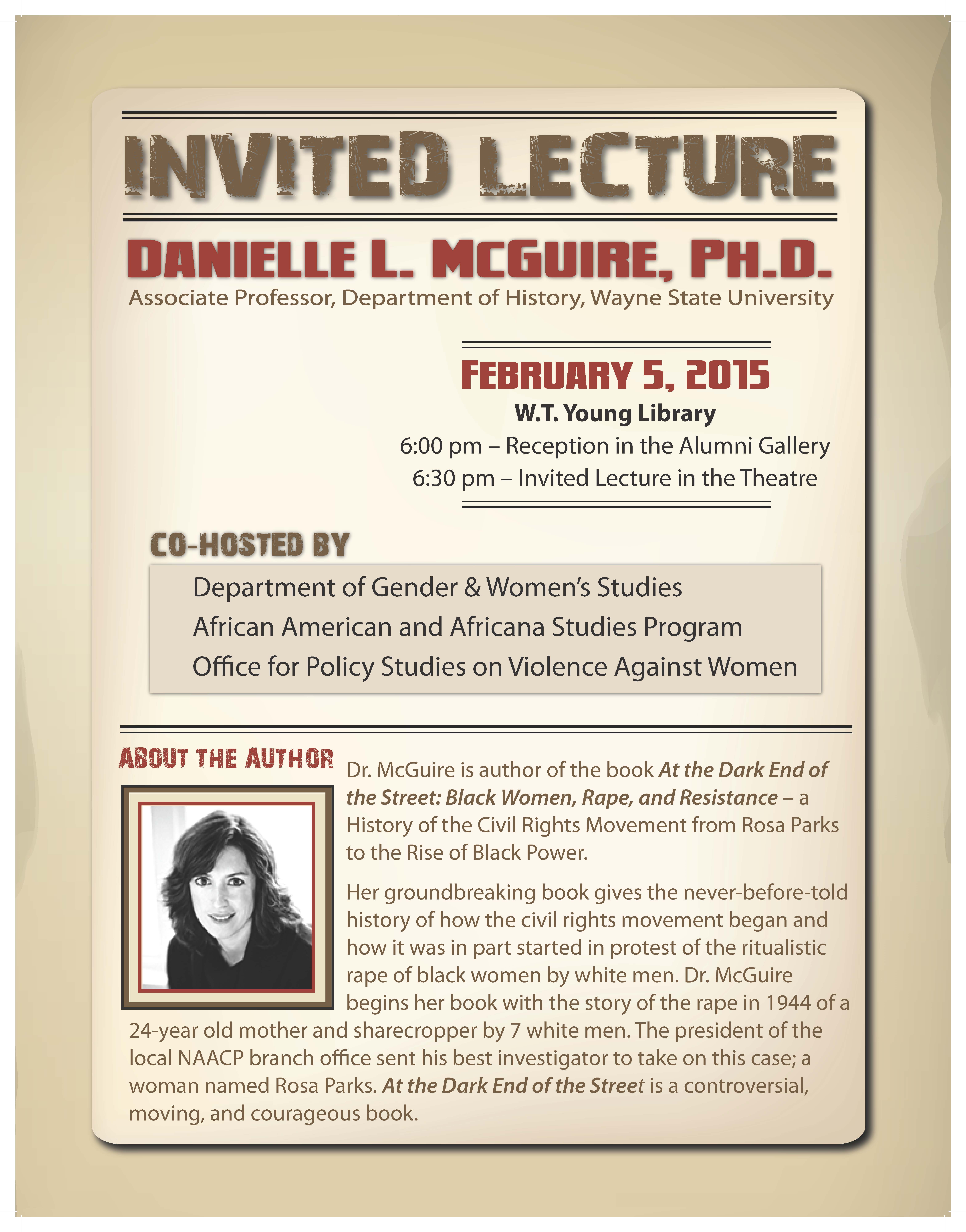
Dr. McGuire is author of the book At the Dark End of the Street: Black Women, Rape, and Resistance – a History of the Civil Rights Movement from Rosa Parks to the Rise of Black Power.
Her groundbreaking book gives the never-before-told history of how the civil rights movement began and how it was in part started in protest of the ritualistic rape of black women by white men. Dr. McGuire begins her book with the story of the rape in 1944 of a 24-year old mother and sharecropper by 7 white men.
The president of the local NAACP branch office sent his best investigator to take on this case; a woman named Rosa Parks. At the Dark End of the Street is a controversial, moving, and courageous book.
Learn more about the author at http://atthedarkendofthestreet.com
Parking is available at 401 Hilltop Avenue (next to W.T. Young Library). Visitor Rates: $2/hour | $16/exit maximum
This lot is to accommodate visitors to the W.T. Young Library. Customers exiting when the cashier booth is in operation will be charged the standard fee (above). Accepted payment methods are cash, check (with driver's license) and credit card (Visa/MasterCard/AMEX/Discover Card).
Handicap parking: Accessible parking is available in the parking lot.
Street parking near the Library is on Woodland Ave. between Hilltop Ave. and Columbia Ave.,in front of the new Woodland Glen dormitories. At that time of day street parking might also be found on Columbia or Woodland.


